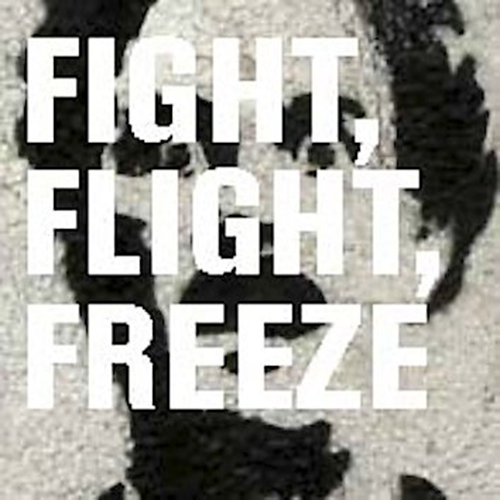The fight or flight response has got a new name. It's now called the fight, flight or freeze response
Adding the word freeze is because often, instead of fighting or fleeing, sometimes we tend to freeze (like a deer in the headlights) in stressful situations
Fight Flight or Freeze Reaction
In other blog posts I’ve been telling you about the fight flight or freeze response and how our different Emotional Styles – Reactive or Avoidant – can impact on romance.
Reactive people are more inclined to be immediately aggressive (fight) and Avoidant people are more likely to be defensive or withdraw (flee). When triggered, people either – fight flight or freeze.

I am talking about freezing or withdrawing psychologically in many instances, not necessarily physically.
Avoidant people may stay in the same place, but just shut down (freeze) or pull back from the relationship. A bit like the deer in the headlights, an Avoidant person can have a ‘frozen’ reaction when he or she perceives danger.
Watch the short video clip by Scott Catamas below to learn how danger in today’s world is no longer the sabre toothed tiger.
Knowing how to control your emotions is one of the most important steps in rebuilding your relationship.
When you’re trying to fix your relationship but your fight, flight or freeze responses are out of control, you will always end up fighting. It’s time to get some professional help.
You can change this today.
I can help you to:
- Recognise with your fight or flight response – the mechanism you use automatically in the face of threat or fear (to “change gears” as it were in order to preserve your energy levels.
- Know your emotional style – your emotional style effects how you react in emotional situations.
- Understand your emotional brain – learn how your brain effects your personal emotions when you’re feeling overhwhelmed by an attack on your well-being and you perceive there is NO HOPE so you tend to FREEZE!

